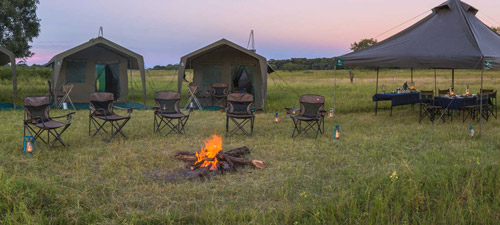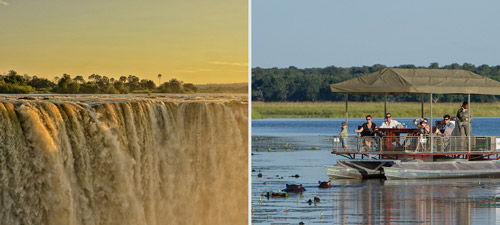African wild dogs (sometimes known as ‘painted dogs’ or ‘painted wolves’) are one of Africa’s most beautiful yet endangered carnivore species. Native to the open plains of sub-Saharan Africa, they are formidable hunters that live in highly social packs dominated by a top (or ‘alpha’) mating pair. Written by: The Serengeti Painted Wolves Project
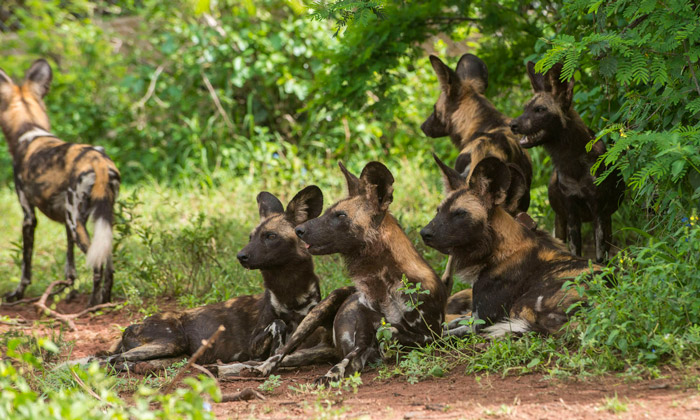
But the species has been in decline across its range. Diseases such as rabies and canine distemper and encroachment of farming activity into their habitats have taken their toll, and wild dogs now occupy just 7% of their former ranges. In a further blow to the species’ future, in 1992, the population in the Serengeti National Park vanished and was presumed extinct.
Then in 2000, there was good news – wild dogs began re-appearing in the Maasai community lands in Loliondo, to the east of the Serengeti National Park. A few elusive dogs were spotted initially, but by 2004 twenty-six individuals had established themselves in four packs, though they didn’t recolonise the park itself.
Genetic testing of these dogs by the University of Glasgow researchers in collaboration with Tanzanian partners showed that these animals were, in fact, the same population as those that vanished from the park years before. The genetic studies also showed no evidence of inbreeding despite the population having gone through a recent bottleneck.
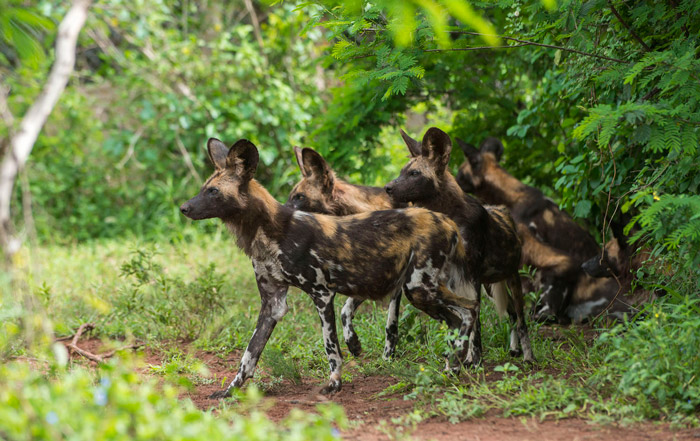
But the wild dog recovery also brought problems to local communities. A lack of wildlife in these pastoral areas was forcing the wild dogs to hunt livestock, which are critical for the livelihoods of the Maasai. In retaliation, the wild dogs have been poisoned, killed and harassed.
The ‘Serengeti Painted Wolves Project’ was established by the Tanzanian Wildlife Research Institute to conserve some of the endangered packs outside the protected area and move them back into the national park. Over the last few years, a total of 66 wild dogs from six of the most severely threatened packs have been captured and moved from the Loliondo area to a holding pen in the western Serengeti and then released into the park. With one exception, all the packs have settled within the national park boundaries.
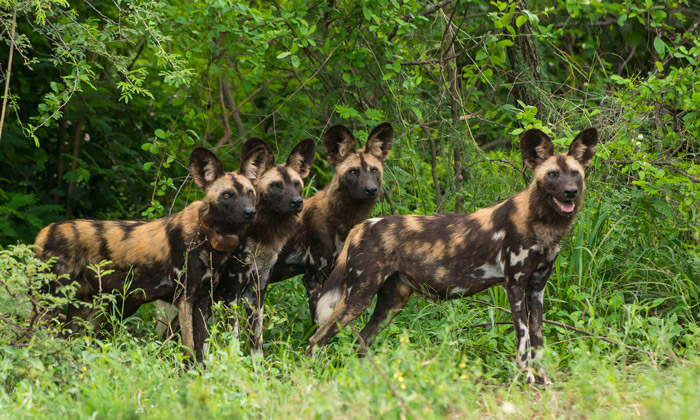
The Serengeti is now celebrating five new litters of wild dogs born to the re-introduced packs. Despite initially feasting on goats, the wild dogs now feed only on wildlife; the abundant impala and young wildebeest calves found inside the park. Even the open boundaries between the protected area and village lands have been free of conflicts between the newly settled wild dogs and domestic stock.
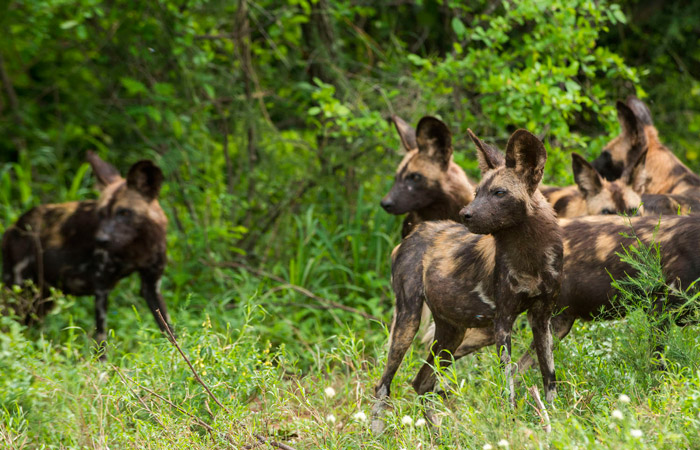
The President of Tanzania, Jakaya Kikwete, came specifically to join in the latest release of a wild dog pack in the western Serengeti this month. President Kikwete is a keen supporter of the Serengeti Painted Wolf Project and has recognised the efforts of the Tanzania Wildlife Research Institute and the University of Glasgow to re-establish the wild dog population in the Serengeti. Such dedication to conservation is reflected across many sectors in Tanzania and is the essence of the nation’s commitment to protecting global biodiversity.
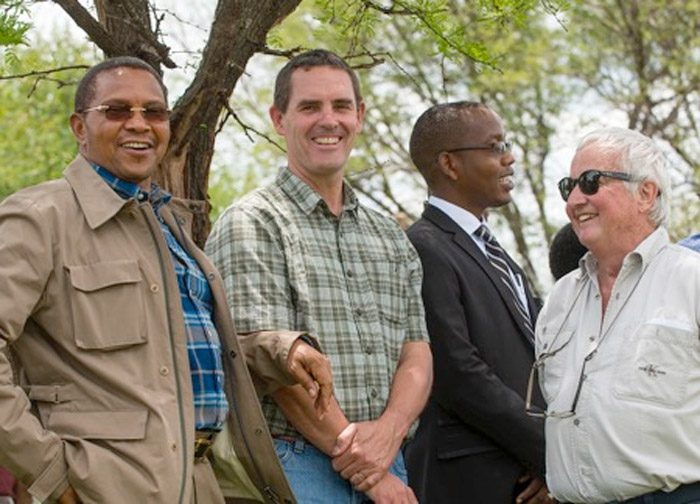
The enormous hard work the Tanzanian field team put in was rewarded when the enclosure gates were opened, and the thirteen wild dogs ran excitedly into the bush. They immediately settled into their new life and successfully hunted twice within two days of the release. Painted wolves, wild once more.
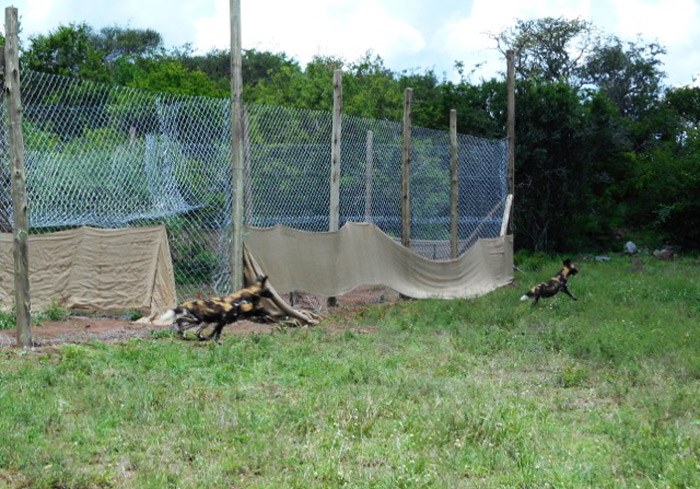
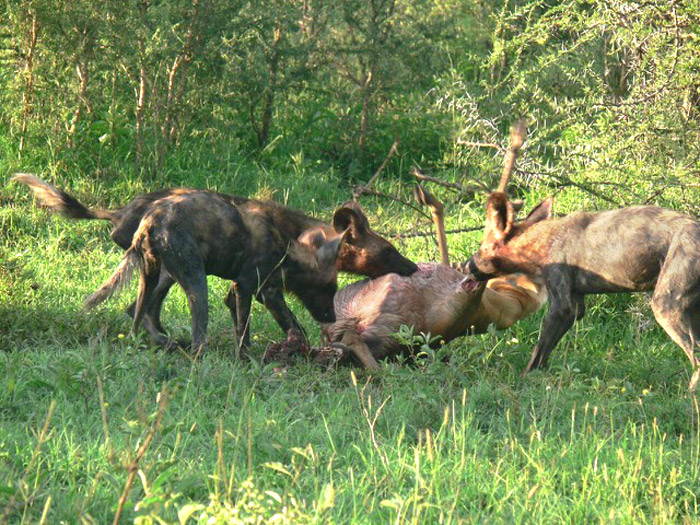
The return of the painted wolves is undoubtedly enriching the beautiful savannahs of the Serengeti. But we still need to understand more about the ecology and demography of the dogs. What competition do they face from other large carnivores, such as lions and hyenas? What determines whether they will move outside the protected areas and how far the packs range? Answering these questions will help us define the core habitat of this species and whether we are doing enough to protect this iconic species and the stunning environments in which they live.
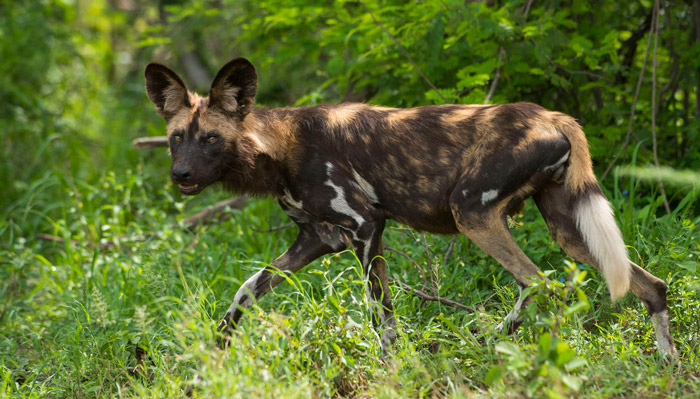
The Serengeti Painted Wolves Project is a joint effort by the Tanzanian Wildlife Research Institute (TAWIRI) and by the University of Glasgow, Institute of Biodiversity, Animal Health and Comparative Medicine. It is funded by the Paul Tudor Jones Family Foundation and a private grant from the President of Tanzania, Dr JK Kikwete. Authors: Eblate Ernest, Emmanuel Masenga (TAWIRI), Markus Borner, and Grant C.Hopcraft (University of Glasgow).
To comment on this story: Login (or sign up) to our app here - it's a troll-free safe place 🙂.![]()
HOW TO GET THE MOST OUT OF AFRICA GEOGRAPHIC:
- Travel with us. Travel in Africa is about knowing when and where to go, and with whom. A few weeks too early / late and a few kilometres off course and you could miss the greatest show on Earth. And wouldn’t that be a pity? Browse our ready-made packages or answer a few questions to start planning your dream safari.
- Subscribe to our FREE newsletter / download our FREE app to enjoy the following benefits.
- Plan your safaris in remote parks protected by African Parks via our sister company https://ukuri.travel/ - safari camps for responsible travellers




